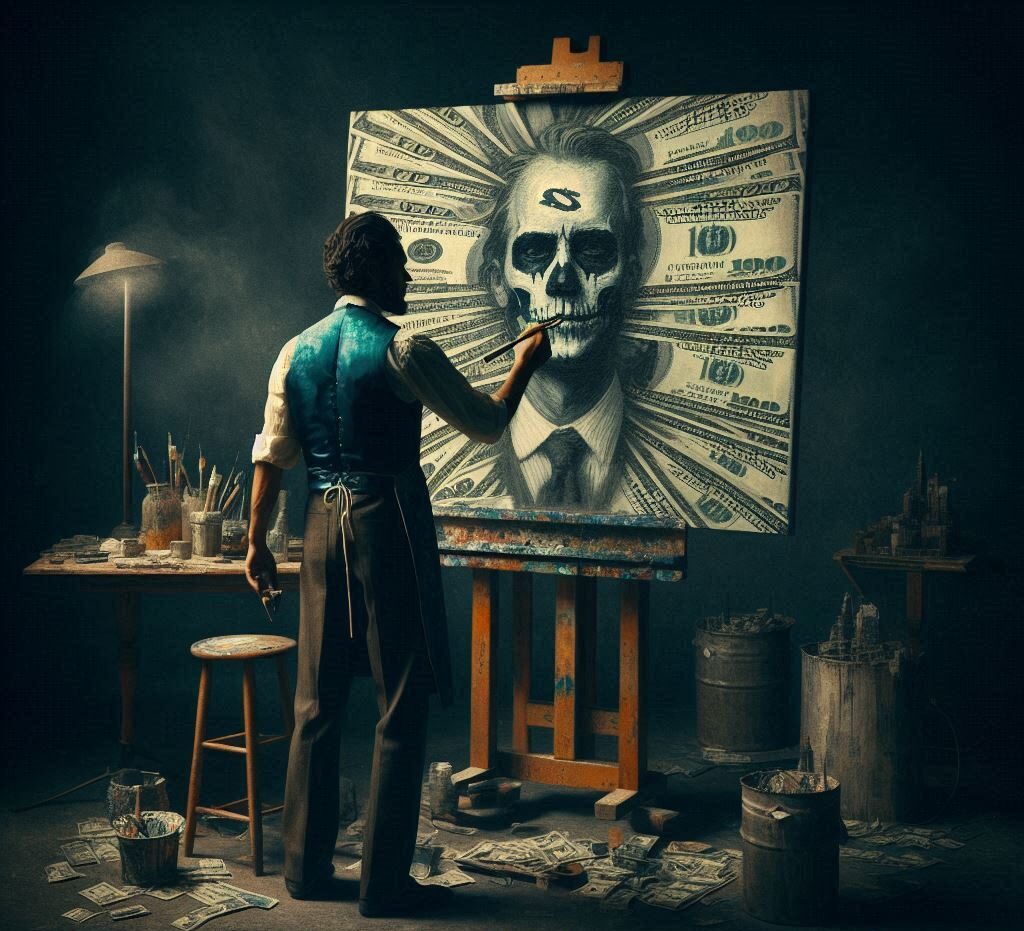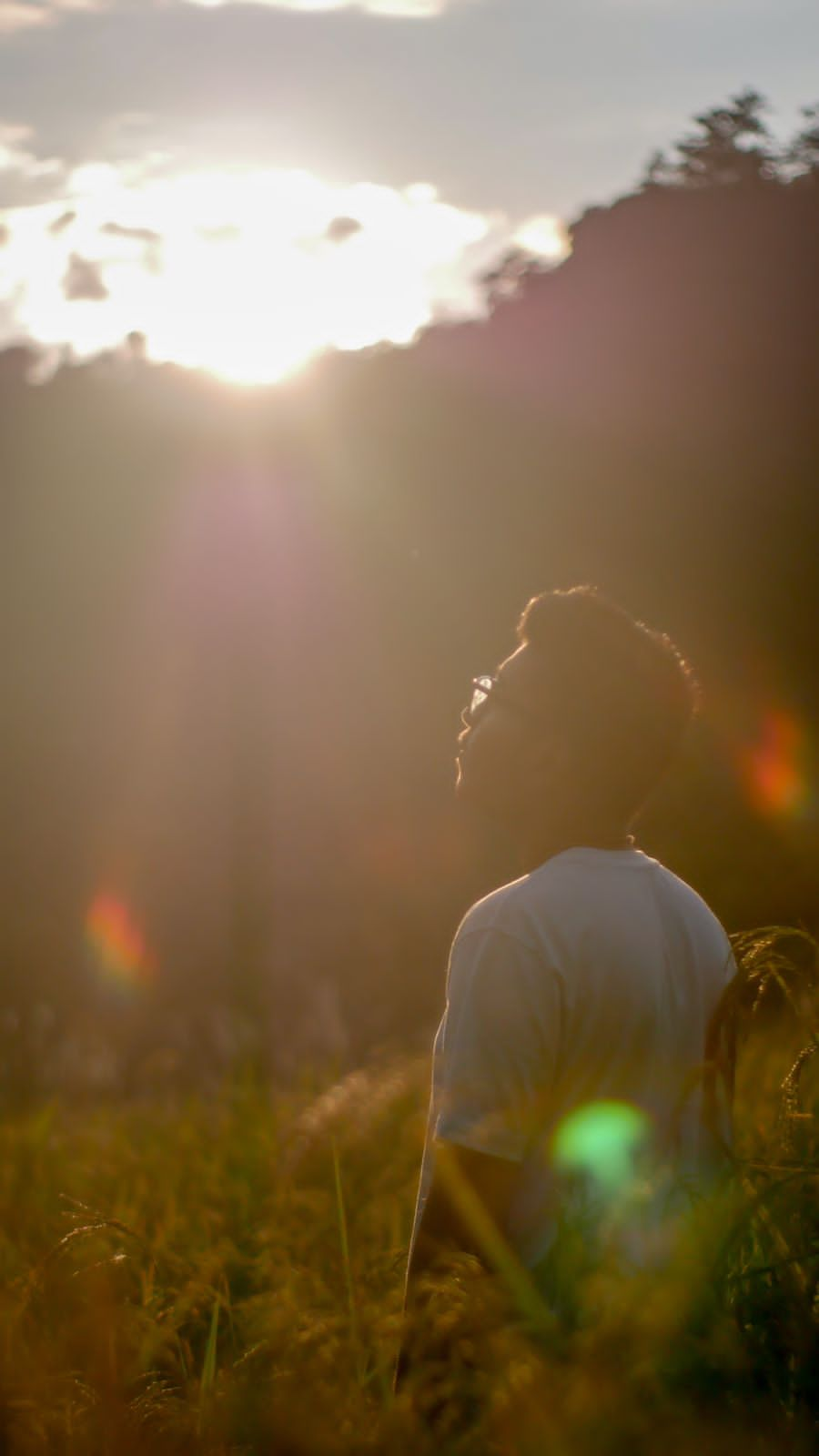In the shadows of gleaming skyscrapers and behind the closed doors of boardrooms, a silent war is being waged. The battlefield? The human mind. The prize? The very essence of creativity itself. As we stand at the crossroads of art and commerce, we witness the slow, insidious conquest of imagination by corporate interests, with the music industry serving as the canary in this digital coal mine.
The Assembly Line of Artistry
Once upon a time, creativity was the realm of the individual, the misfit, the dreamer. Artists toiled in garrets, musicians jammed in garages, writers scribbled in cafes. But in our brave new world, creativity has been stripped of its romance and reduced to a cold, calculated process.
The modern creative industry, exemplified by but not limited to the music world, now operates more like a factory than an atelier. Ideas are no longer born; they’re manufactured. Inspiration doesn’t strike; it’s scheduled. The corporate machine has transformed the unpredictable spark of creativity into a standardized, quantifiable commodity.
In the music industry, this transformation is starkly evident. Songs are no longer written; they’re engineered. A team of producers, armed with data analytics and trend forecasts, construct tracks designed to maximize engagement and minimize risk. The result? A homogenized soundscape where true innovation is sacrificed at the altar of guaranteed returns.
But this is not just about music. From Hollywood’s endless remakes to the formulaic plots of bestselling novels, from copycat mobile apps to risk-averse venture capital investments, the fingerprints of corporate control are everywhere. Creativity, once wild and unpredictable, has been domesticated, neutered, and put to work in service of the bottom line.
The Algorithms of Inspiration
In this brave new world, Streaming platforms use sophisticated algorithms to analyze listening patterns, feeding this data back to record labels who use it to shape their artists’ output. Book publishers use similar tools to predict the next bestseller, while film studios rely on data analytics to green-light projects. The result is a feedback loop of mediocrity, where past success becomes the template for future creation.
This algorithmic approach to creativity extends far beyond the entertainment industry. In the world of fashion, trend-prediction algorithms dictate the next season’s styles. Even in the hallowed halls of academia, algorithms are being used to evaluate research proposals.
The dark irony is that these tools, ostensibly designed to foster creativity, are instead stifling it. True innovation – the kind that changes paradigms and pushes boundaries – is inherently unpredictable. It can’t be reduced to a formula or predicted by an algorithm. By trying to eliminate risk from the creative process, we’re eliminating the very thing that makes creativity valuable.
The Commodification of the Creator
In this corporatized creative landscape, the artist, the innovator, the creator – the individual human at the heart of the creative process – has been reduced to a cog in the machine. Their value is measured not in terms of their vision or their passion, but in their ability to generate content that feeds the insatiable maw of the corporate beast.
Musicians are no longer seen as artists but as “content creators,” expected to maintain a constant stream of output to feed social media algorithms and streaming platforms. Writers are pressured to produce series that can be easily marketed and adapted, rather than standalone works of depth and complexity. Painters and visual artists find their work reduced to instagrammable moments or corporate logo designs.
This commodification extends to the very identity of the creator. Personal branding is no longer just for corporations; it’s a necessity for anyone hoping to make a living in the creative industries. Artists are expected to curate their public personas with the same calculation that goes into crafting their work. Authenticity, once the hallmark of great art, has become just another marketing strategy.
The result is a generation of creators who are more marketer than artist, more concerned with engagement metrics than artistic integrity. The toll this takes on the human psyche is immeasurable. Burnout, anxiety, and creative block are endemic in an industry that views its human resources as little more than idea factories.
The Monopolization of Ideas
As creativity becomes increasingly corporatized, we’re witnessing a dangerous consolidation of cultural power. A handful of mega-corporations now control the majority of our cultural output, from the music we listen to and the movies we watch to the news we read and the social media platforms we use to express ourselves.
This monopolization has far-reaching consequences. It narrows the range of ideas that reach a mass audience, creating a cultural echo chamber where the same concepts are recycled ad nauseam. It stifles diverse voices, as ideas that don’t fit the corporate mold struggle to find an audience. And it creates a chilling effect on creativity itself, as artists internalize the limitations imposed by the market.
In the music industry, this manifests as a narrowing of sonic diversity. The study by Joan Serra and his colleagues, showing a decline in timbral variety and harmonic complexity, is not just an indictment of changing musical tastes. It’s evidence of a cultural homogenization driven by corporate interests.
But again, this extends far beyond music. In every creative field, we see a similar pattern of consolidation and homogenization. From the mergers of publishing houses to the dominance of a few tech giants over our digital lives, the spaces for independent thought and creation are being squeezed out of existence.
The Patenting of Imagination
In perhaps the darkest turn of this corporate takeover, we’re seeing attempts to literally own ideas. Intellectual property laws, originally designed to protect and incentivize creativity, have become weapons wielded by corporations to stifle competition and control the flow of ideas.
Patent trolls roam the landscape of innovation, buying up intellectual property not to create, but to litigate. Copyright terms extend far beyond the life of the creator, ensuring that culture remains locked behind corporate walls for generations. Even colors and sounds can now be trademarked, fencing off entire swaths of the creative commons.
This obsession with owning ideas is fundamentally at odds with the collaborative nature of creativity. All innovation builds on what came before. All artists are influenced by their predecessors. But in a world where every idea is owned, catalogued, and monetized, the free exchange of thoughts that drives cultural evolution is under threat.
The Resistance of the Human Spirit
Yet, in the face of this corporate onslaught, glimmers of hope remain. The human spirit, with its infinite capacity for creativity, is not so easily conquered. In the margins and the underground, in basement studios and on independent platforms, authentic creativity still flourishes.
Musicians are building direct relationships with fans, bypassing traditional industry gatekeepers. Writers are self-publishing, finding niche audiences for work that doesn’t fit the corporate mold. Visual artists are using blockchain technology to protect their digital works and ensure fair compensation.
These pockets of resistance remind us that creativity can’t be entirely tamed or commodified. They stand as a testament to the resilience of the human imagination, a reminder of what we stand to lose if we allow the corporate conquest of creativity to go unchallenged.
Epilogue: The Crossroads of Culture
As we stand at this crucial juncture, the path we choose will determine not just the future of art and culture, but the very nature of human expression. Will we allow creativity to be fully subsumed by corporate interests, reduced to a series of risk-averse, focus-grouped products? Or will we fight to preserve the wild, unpredictable, gloriously human nature of true creativity?
The stakes could not be higher. Creativity is not just about entertainment or cultural products. It’s about how we solve problems, how we express our humanity, how we imagine better futures. A world where creativity is fully corporatized is a world of diminished possibilities, a world where the full potential of human imagination is never realized.
The corporatization of creativity is a silent crisis, overshadowed by more immediate concerns. But its impact on our society, our culture, and our very humanity is profound. As we navigate this new landscape, we must remain vigilant, questioning the sources of our cultural consumption and supporting those creators who dare to buck the corporate trend.
For in the end, creativity – true, unbridled, human creativity – is one of our most precious resources. It’s the wellspring of innovation, the source of solutions to our greatest challenges, the beating heart of human culture which shouldn’t be driven by corporate interests. Now, let us all take a deep breath.

